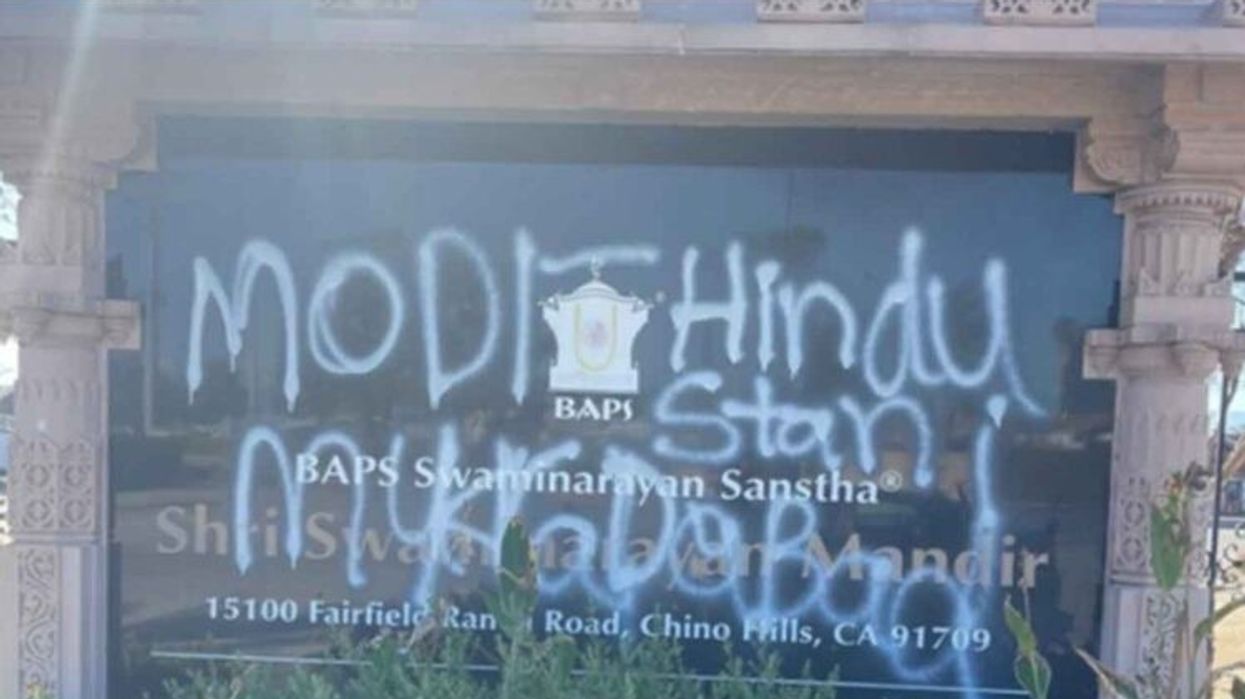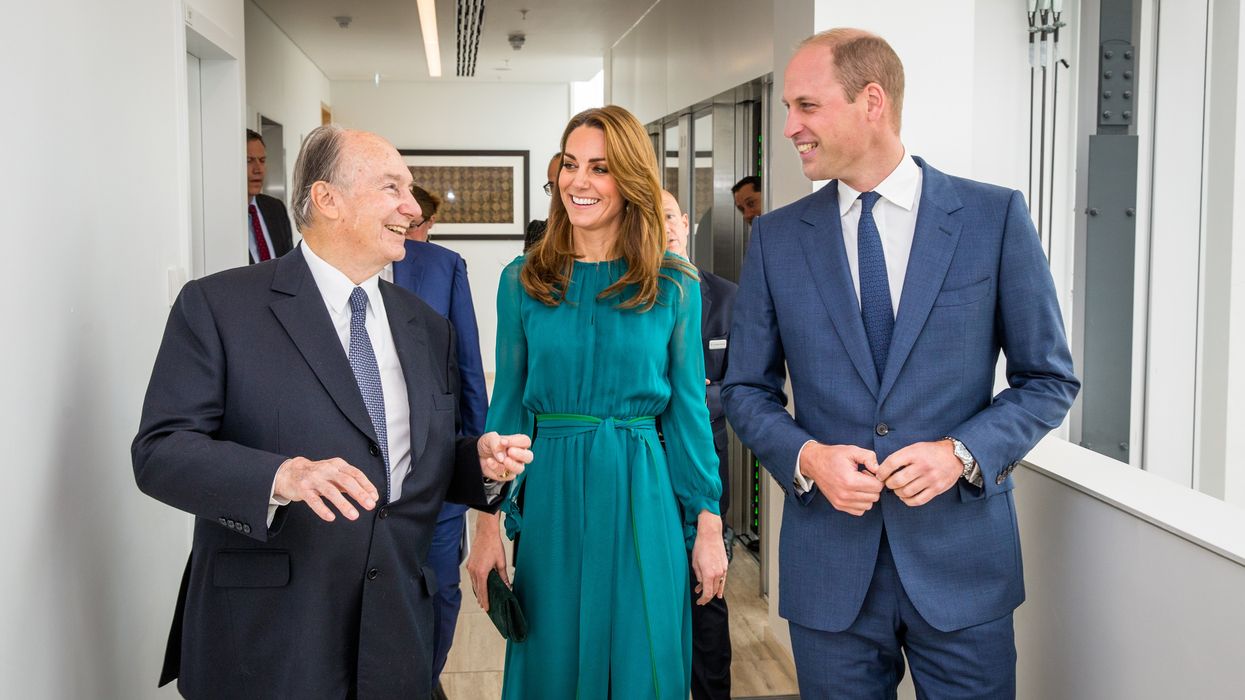Lorem ipsum is typically a corrupted version of De finibus bonorum et malorum, a 1st-century BC text by the Roman statesman and philosopher Cicero, with words altered, added, and removed to make it nonsensical and improper Latin. The first two words themselves are a truncation of dolorem ipsum
Site Navigation
Search
Latest Stories
Start your day right!
Get latest updates and insights delivered to your inbox.
Related News
More For You

India enters the final as favourites and is expected to have strong crowd support at the 25,000-capacity venue. (Photo: Getty Images)
Champions Trophy final: 5 factors that may shape India-New Zealand clash
Mar 08, 2025
INDIA and New Zealand will meet in the Champions Trophy final on Sunday to determine the winner of the eight-team ODI tournament.
The match will be played at the Dubai International Cricket Stadium, where India has played all its games after opting not to travel to Pakistan, the designated host, due to political tensions.
India enters the final as favourites and is expected to have strong crowd support at the 25,000-capacity venue.
ALSO READ: Unbeaten India set to face New Zealand in Champions Trophy final
However, New Zealand has the upper hand in recent encounters. They swept India 3-0 in a Test series last year and have a better record in global white-ball tournaments, with nine wins, six losses, and one no-result.
Here are five key factors that could influence the final:
Henry's opening burst
New Zealand's Matt Henry leads the wicket-taking charts in the tournament with 10 scalps, including five in their earlier match against India.
In that group-stage game, Henry dismissed Shubman Gill and Virat Kohli early, reducing India to 30-3 before a middle-order recovery helped them reach 249-9.
He finished with figures of 5-42, though his team ended up on the losing side.
His early spell in the final could be crucial for New Zealand in setting the tone.
Chakravarthy's mystery spin
Wrist spinner Varun Chakravarthy was a late addition to India's squad and made an immediate impact, taking 5-42 against New Zealand in his first match of the tournament.
That was only his second ODI, having debuted against England in February. The 33-year-old added two more wickets in the semi-final against Australia.
If he is included in the XI, Chakravarthy’s variations could be key for India, especially on pitches that have supported spin.
Ravindra, Williamson threat
Rachin Ravindra and Kane Williamson head into the final on the back of centuries against South Africa in Lahore.
The pair shared a 164-run stand in the semi-final and are known for their ability to handle spin.
Williamson, 34, also scored 81 in New Zealand's previous match against India, while 25-year-old Ravindra has been in good form throughout the tournament.
New Zealand's skipper and left-arm spinner Mitchell Santner noted that having Williamson and Ravindra in form makes life "a little easier" for the team’s bowlers.
Rohit's start
India captain Rohit Sharma has not posted a big score in the tournament, with his highest being 41 in the opening match against Bangladesh.
However, his brief innings against Pakistan and Australia provided India with quick starts, allowing the middle order to build on them.
While critics have pointed out his inability to convert starts into bigger scores, head coach Gautam Gambhir has defended his contributions.
"You evaluate from the runs; we evaluate from the impact. That's the difference," Gambhir said when asked about Rohit's form.
The pitch factor
The playing surface in Dubai has been a major talking point, as India has played all its matches at the venue after opting not to travel to Pakistan.
The pitch has been slow and favoured spinners, with the highest total in the tournament being Australia’s 264, which India chased down with 11 balls to spare.
Meanwhile, matches in Pakistan have produced higher scores. New Zealand posted a Champions Trophy record of 362-6 before restricting South Africa to 312-9 in Lahore.
While India remains at its chosen venue for the final, Ravindra said New Zealand is prepared to adjust.
"We pride ourselves in adapting and playing the situation in front of us," he said.
(With inputs from AFP)
Keep ReadingShow less
Most Popular
Comment
Aga Khan IV tribute: ‘His vision and impact transcended borders, faiths and generations’
Naushad Jivraj
14 February

Reeves is expected to announce welfare spending cuts worth billions of pounds in the Labour government's Spring Statement on March 26. (Photo: Getty Images)
Welfare system too costly, needs reform: Rachel Reeves
Mar 08, 2025
CHANCELLOR Rachel Reeves said on Friday that the UK’s welfare system is "costing too much" and must be reformed as the government faces financial pressures from high inflation and borrowing.
Reeves is expected to announce welfare spending cuts worth billions of pounds in the Labour government's Spring Statement on March 26. The statement will be a follow-up to her first budget last October, according to reports this week.
Economic challenges, including global uncertainty over US tariffs and the war in Ukraine, have affected the UK's finances, reducing the Labour government's £9.9 billion fiscal cushion.
"We've got to reform our welfare system, because at the moment, it's letting down taxpayers because it's costing too much," Reeves said on Sky News' Electoral Dysfunction podcast.
She added that the system is "letting down our economy" and leaves people "trapped on benefits, rather than actively supported back into work."
"We need to get better value for money for what taxpayers put in," she said.
The Financial Times reported on Friday that the Treasury is considering cutting funding for GB Energy, Labour's green energy infrastructure project, to reduce costs. The initiative was launched after the party's general election victory last July.
The government had allocated £8.3 bn over five years as part of prime minister Keir Starmer’s plan to meet Britain’s climate targets.
"We are fully committed to GB Energy, which is at the heart of our mission to make Britain a clean energy superpower and to ensure homes are cheaper and cleaner to run," a government spokesperson told AFP in response to the FT report.
Reeves faces challenges in meeting her own fiscal rules, which prevent borrowing for day-to-day spending. The rules are aimed at maintaining financial market confidence in government spending plans.
While cutting costs, Starmer last week pledged to increase UK defence spending to 2.5 per cent of GDP by 2027. The decision comes amid concerns over the United States’ commitment to Ukraine and NATO.
(With inputs from AFP)
Keep ReadingShow less
Lloyds to hire 4,000 tech workers in India, cut UK jobs: Report
Mar 07, 2025
LLOYDS Banking Group is hiring hundreds of IT engineers in India while planning to cut similar jobs in the UK, according to a report.
The bank aims to have 4,000 permanent technology and data employees in India by the end of the year, nearly half of its global engineering workforce, reported the Financial Times.
These employees will be based at a tech centre in Hyderabad, which opened in 2023. Lloyds is currently recruiting full-stack, cloud, and quality engineers for the facility as part of its IT transformation.
The bank recently warned 6,000 UK IT employees that their jobs were at risk due to a review of required skills. It plans to create 1,200 new high-skilled tech jobs, but employees must apply for them through a competitive process.
Lloyds has not specified how many roles will be cut but has acknowledged some workers will lose their jobs, FT reported.
Chief operating officer Ron van Kemenade said in a letter to staff that while many employees would transition to new roles, some would not secure positions due to skill requirements, location, and reduced demand.
Mark Brown, general secretary of Lloyds’ independent union BTU, criticised the decision, calling it “breathtaking hypocrisy.” He urged the bank to invest in training UK-based IT specialists through apprenticeships.
Other UK banks, including NatWest and Nationwide, have also shifted IT operations to India.
Lloyds is implementing these changes as part of a £4bn investment plan led by CEO Charlie Nunn, aimed at improving returns through digitisation and cost-cutting.
The bank has already announced plans to cut 500 jobs and close 136 branches this year.
Lloyds said the restructuring involves creating new roles, upskilling staff, and letting go of some employees who have contributed to the bank’s past success.
Keep ReadingShow less

A suspected victim of modern slavery, who was initially denied state support after Britain introduced a tougher immigration policy, poses for a portrait following an interview with Reuters in London on September 19, 2024. (Photo: Reuters)
UK sees record rise in modern slavery cases
Mar 07, 2025
THE NUMBER of people referred as potential victims of modern slavery in the UK reached a record high last year, according to official figures released on Thursday. Experts have called for urgent policy changes to tackle the growing issue.
Home Office data showed 19,125 referrals were made to the National Referral Mechanism (NRM) in 2024, the highest recorded so far. The figure surpassed the previous record of around 17,000 referrals in 2023. The NRM is the UK's system for identifying and supporting victims of modern slavery.
Modern slavery includes human trafficking, forced labour, servitude, and exploitation. The issue has been rising globally due to poverty, conflict, and migration, with millions of people affected.
In Britain, victims can be exploited in different sectors, including the drug and sex trades, car washes, nail salons, private homes, and social care. Men, women, and children are among those impacted.
"These statistics are not just numbers, they are individuals with voices, voices that the government need to listen to," said Britain's independent anti-slavery commissioner, Eleanor Lyons.
"A cross-government modern slavery strategy is needed that will enable law enforcement to prioritise tackling this crime."
Human rights group Anti-Slavery International estimates that around 130,000 people in Britain are living in conditions of modern slavery.
Of the total referrals made to the NRM in 2024, 23 per cent were British nationals, making them the largest group.
Albanians accounted for 13 per cent of cases, followed by Vietnamese nationals at 11 per cent. Nearly 6,000 referrals, or about 31 per cent, involved children.
Charities and lawmakers have called for stronger enforcement of labour laws and reforms to immigration policies. They argue that the government's approach has focused on curbing illegal migration rather than addressing modern slavery.
Tougher immigration rules have left thousands trapped in exploitative conditions, making them less likely to seek help due to fear of deportation, Reuters reported last month.
"(Today's) figures reinforce a crucial point: modern slavery is a crime against individuals and must not be conflated with immigration offences," Lyons said.
The government has said it will hire additional caseworkers to speed up claims processing under the NRM. At the end of 2023, more than 17,000 people were awaiting a second-stage decision on their claims, according to official data.
(With inputs from Reuters)
Keep ReadingShow less

Videos shared on social media showed protesters waving flags of the Khalistan movement and shouting slogans outside Chatham House, where Jaishankar was speaking on Wednesday.
India criticises security breach during S Jaishankar's London visit
Mar 06, 2025
INDIA condemned a security breach in London during its foreign minister Subrahmanyam Jaishankar’s visit, where a protester broke through a police cordon, stood in front of his car, and tore the Indian flag before being removed by police.
The Indian foreign ministry called the group behind the protest a "small group of separatists and extremists" and urged Britain to uphold its "diplomatic obligations."
Videos shared on social media showed protesters waving flags of the Khalistan movement and shouting slogans outside Chatham House, where Jaishankar was speaking on Wednesday. One protester broke through the police barrier as he was leaving but was quickly taken away by officers.
Jaishankar is on a six-day visit to the United Kingdom and Ireland.
"We deplore the misuse of democratic freedoms by such elements. We expect the host government in such cases to fully live up to their diplomatic obligations," said foreign ministry spokesperson Randhir Jaiswal in a statement.
Britain’s foreign office has not yet responded to a request for comment from Reuters.
The Khalistan movement, which seeks a separate Sikh homeland from India, is viewed as a security threat by the Indian government. It has also been a point of tension in India’s relations with Canada.
India had previously called on Britain to monitor UK-based Khalistan supporters more closely after protesters carrying Khalistan banners removed the Indian flag from the country’s diplomatic mission in April 2023.
(With inputs from Reuters)
Keep ReadingShow less
Load More
© Copyright 2025 Garavi Gujarat Publications Ltd & Asian Media Group USA Inc
















